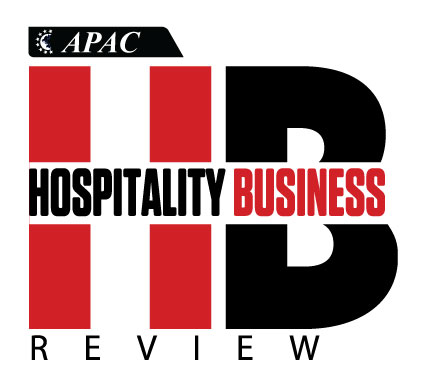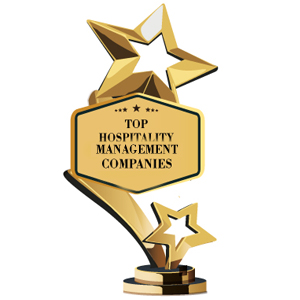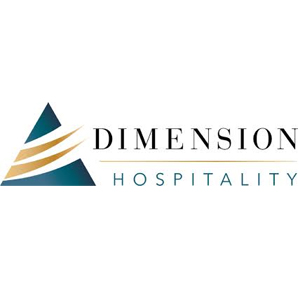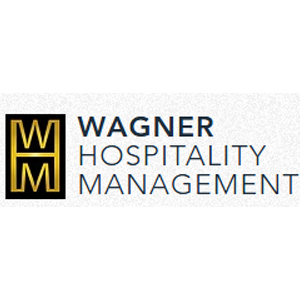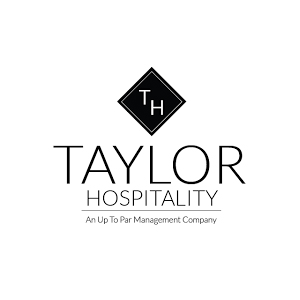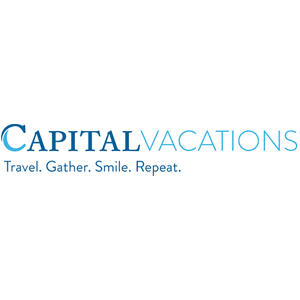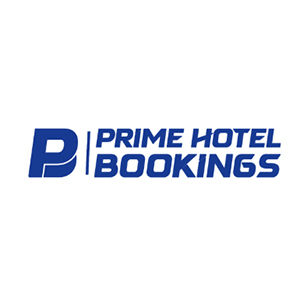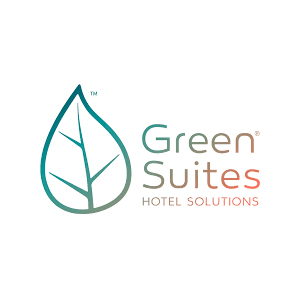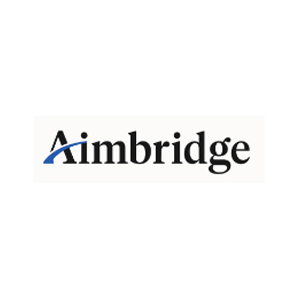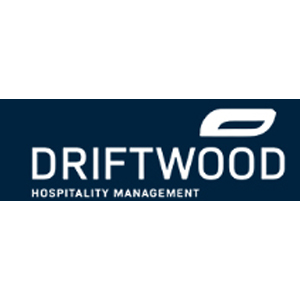\\\\ Top Hospitality Management Companies \\\\
\\\\\\\\\\ Top Hospitality Management Companies \\\\\\\\\\
-
Dimension Hospitality
Dimension Hospitality is a hotel management company built on a people-first philosophy, where culture drives performance. For over five decades, Dimension Hospitality has grown through a team of associates—each chosen for character, trusted with ownership, and committed to delivering sincere, guest-focused service across its hotels.
-
Wagner Hospitality Management
Wagner Hospitality Management (WHM) is a Boston-based firm redefining boutique hospitality through authentic, community-driven experiences. Specializing in boutique conversions and independent hotel operations, WHM combines thoughtful design, digital innovation, and people-first service to craft hotels that reflect local culture, enhance profitability, and deliver memorable stays rooted in connection, character, and story.
-
Taylor Hospitality
Taylor Hospitality is a leading provider of hotel, restaurant, resort, and event center management services across the United States. The company delivers exceptional guest experiences through expert operations, staff training, and value-driven partnerships that enhance property performance and profitability.
-
Capital Vacations
Capital Vacations partners with independent resorts across the U.S., Maxico and Caribbean to enhance guest experiences through technology, exclusive vacation products and value-added services. Serving over a million travelers annually, the company drives resort revenues, fosters lasting relationships and delivers personalized Owner, Member and guest-centric vacation solutions.
-
Prime Hotel Bookings
Prime Hotel Bookings simplifies business travel with simple hotel reservations worldwide. Instead of making travelers bounce between apps, compare fluctuating rates and second-guess whether they’re getting a good deal, Prime takes the legwork out of the process entirely. Unlike typical price aggregator platforms, where users still do all the searching and sorting, Prime offers a concierge-style service that steps in and handles it.
-
Mattress Concierge
Mattress Concierge crafts mattresses purpose-built for hospitality, helping hotels deliver sleep that guests trust and remember. Founded by Jeff Rogers and later led by Rob Richards until his passing, the company continues under Maura Zambarano’s leadership, partnering closely with properties to customize comfort, protect brand reputation and turn a good night’s sleep into repeat bookings and lasting loyalty.
-
Green Suites Hotel Solutions
Green Suites Hotel Solutions is a leader in sustainable hospitality, providing cost-effective soap dispensers and eco-friendly amenities that reduce plastic waste. Its Ecocents program offers hotels smarter ways to cut expenses while enhancing guest experiences. With over 30 years of industry expertise, Green Suites helps hotels achieve sustainability and savings.
-
Andaaz Manufacturing
Andaaz Manufacturing takes pride in its ability to turn designer visions into physical realities. For Andaaz, there’s no such thing as a one-size-fits-all approach. Everything they produce is custom-made to bring to life the creative ideas of architects and designers, delivering furniture that complements and enhances its environment.
-
Aimbridge Hospitality
Aimbridge Hospitality is a leading global hotel management company operating a diverse portfolio of branded and independent properties across luxury, full-service, and extended-stay segments. With industry expertise and a results-driven approach, Aimbridge delivers exceptional guest experiences while maximizing profitability for hotel owners and investors.
-
Driftwood Hospitality
Driftwood Hospitality Management is a hotel management company specializing in developing, acquiring, and operating hotels across the U.S. With a diverse portfolio of premium brands and independent properties, Driftwood delivers exceptional guest experiences while maximizing operational efficiency and profitability for owners and investors. Learn more at driftwoodhospitality.com.
More in News
Flexible Staffing Models: The New Backbone of Hotel Workforce Strategy
Friday, February 27, 2026
The hospitality sector, characterized by its unwavering dedication to guest experience, is currently undergoing a significant paradigm shift in its approach to workforce management. Traditional, inflexible staffing paradigms are progressively being supplanted by more adaptable and responsive flexible staffing models. This evolution represents not merely a reactive measure to market volatility but a strategic imperative, enabling hotels to prosper amidst an environment of continually evolving consumer preferences and economic fluctuations. Consequently, flexible staffing is no longer a marginal consideration but is rapidly emerging as the fundamental framework for a robust and forward-looking hotel workforce strategy. Understanding the Variability of the Hospitality Industry The fundamental driver behind this shift is the inherent variability of the hospitality industry. Occupancy rates can ebb and flow dramatically, influenced by seasonality, local events, and broader economic trends. A flexible workforce allows a hotel to scale its staffing levels up or down in direct response to these fluctuations. This adaptability ensures that the correct number of staff with the right skills are available at the proper times, optimizing labor costs without compromising on the quality of service. During peak periods, a hotel can seamlessly augment its core team to meet heightened demand, ensuring that every guest receives the attentive service they expect. Conversely, during quieter times, the workforce can be scaled back, preventing overstaffing and the associated financial strain. Enhancing Guest Experience Through Agility This operational agility translates directly into a more consistent and elevated guest experience. When a hotel is appropriately staffed, every touchpoint of the guest journey, from check-in to housekeeping to dining, is managed efficiently and professionally. Guests are not left waiting at the front desk due to a shortage of receptionists, nor do they find service in the restaurant slow because the food and beverage team is stretched thin. A well-managed, flexible workforce ensures that service standards are not only met but consistently exceeded, thereby fostering guest satisfaction and loyalty. By having the ability to bring in specialized skills as needed, hotels can also enhance their offerings for specific events or cater to unique guest requirements, further personalizing the experience. Beyond the significant operational and guest-centric advantages, flexible staffing models are reshaping the employee experience for the better. The modern workforce increasingly values autonomy and a healthy work-life balance. Flexible work arrangements, such as part-time schedules, on-demand shifts, and cross-training opportunities, empower employees with greater control over their professional lives. This can lead to higher job satisfaction, increased motivation, and a more engaged and productive team. A positive and supportive work environment, where employees feel their personal needs are respected, cultivates a stronger sense of loyalty and reduces turnover, a persistent challenge in the hospitality sector. The Role of Technology in Workforce Management A strategic and holistic approach underpins the successful integration of flexible staffing models. It begins with a deep understanding of the hotel's unique demand patterns, leveraging historical data and predictive analytics to accurately forecast staffing needs. This data-driven approach allows for proactive workforce planning rather than reactive hiring. Building a diverse talent pool is another crucial element. This includes a core team of full-time employees who embody the brand's culture and values, supplemented by a reliable network of part-time, temporary, and on-call professionals. Technology plays a pivotal role in the seamless management of a flexible workforce. Modern workforce management systems enable efficient scheduling, real-time communication, and streamlined payroll processes. Mobile applications allow employees to view their schedules, request extra shifts, and communicate their availability, fostering a sense of empowerment and engagement. These technological tools not only enhance operational efficiency but also provide valuable data and insights that can be used to refine staffing strategies further. Maintaining a consistent brand identity and high service standards with a flexible workforce requires a robust training and development framework. A comprehensive onboarding process that instills the hotel's core values and service standards in all team members, regardless of their employment status, is essential. Cross-training programs not only provide greater flexibility in staff deployment but also offer employees opportunities for skill development and career growth. By investing in the continuous training of the entire workforce, hotels can ensure that every team member is a true ambassador of the brand. The integration of flexible staffing models signifies a pivotal transformation in the hotel industry's approach to human capital management. This strategic departure from rigid, standardized structures fosters a more efficient and employee-centric framework. By adopting flexibility, hotels can navigate market unpredictability with enhanced agility, consistently deliver exceptional guest experiences, and cultivate a more engaged and motivated workforce. As the hospitality landscape continues to evolve, entities that have established their workforce strategy upon the robust and adaptable foundation of flexible staffing will be optimally positioned for sustained success and expansion.
Transforming Hospitality: Trends and Innovations in Mobile Furniture Solutions
Thursday, February 26, 2026
Hospitality mobile furniture solutions have emerged as a vital component in modern lodging, dining, and event spaces as hotels, resorts, and hospitality venues redefine guest experiences and operational agility. Traditional static furniture no longer meets the dynamic needs of contemporary spaces, where versatility, aesthetics, and multifunctionality drive revenue and customer satisfaction. Mobile furniture solutions, including modular seating, convertible installations, foldable banquet systems, portable workstations, movable privacy partitions, and tech-integrated furnishings, enable venues to quickly adapt layouts to changing service demands, social distancing requirements, and event formats. Future of Modern Hospitality Venues Modern hotels and hospitality venues no longer operate within fixed room formats; instead, they adapt spaces for conferences, banquets, coworking lounges, pop-up experiences, and hybrid events. Flexible furniture supports these diverse functions by enabling staff to reconfigure rooms rapidly without costly renovations. As business travel, meetings, and social events return, venues equipped with adaptable furniture configurations can maximize revenue opportunities by hosting varied functions within the same footprint. Guest experience expectations fuel demand for mobile furniture. Hospitality patrons increasingly value personalization and comfort, seeking environments that seamlessly accommodate relaxation, work, socializing, and entertainment. Portable lounge seating, plug-and-play workstations, and adjustable tables allow guests to shape their surroundings according to their needs. The customization enhances perceived value, increases repeat bookings, and fosters positive brand impressions. The need for compliance with evolving safety and health guidelines also drives investment in mobile furniture. During public health events such as pandemics, venues use mobile partitions, spaced seating, and mobile sanitation stations to create safe environments that comply with distancing protocols. Furniture that supports flexible seating plans, easy cleaning, and quick reconfiguration helps venues adapt to changing regulations without significant capital projects or downtime. Sustainability and lifecycle cost concerns further support the adoption of mobile furniture solutions. Many hospitality operators seek furnishings that reduce waste, extend usability, and align with broader environmental commitments. Mobile, modular systems lessen the need for frequent replacements, support upgrades without full refurnishing, and often incorporate recyclable or environmentally friendly materials as designers respond to green consumer expectations. Revolutionizing Hospitality with Latest Technology Technology implementation reshapes the development and application of mobile furniture solutions in hospitality settings. One noticeable trend is the integration of charging and connectivity features directly into furniture. Wireless charging pads, integrated power outlets, USB ports, and cable management systems create functional zones that support guest devices without clutter. As remote work and digital nomadism trends rise, mobile workstations with built-in tech amenities enable guests to work comfortably in lobbies, lounges, and guest rooms. Embedded sensors can monitor usage patterns, occupancy levels, and space utilization, feeding data into facility management systems. The connectivity helps hospitality operators understand guest behavior, optimize cleaning schedules, and adjust layouts in response to real-time demand. Smart furniture may integrate with mobile property apps to allow guests to request reconfiguration services, order room service directly from their seating area, or control lighting and climate through intuitive interfaces. Customization and personalization trends significantly influence product development. Hospitality properties seek furniture solutions that reflect brand identity, regional aesthetics, and cultural context. Mobile furniture manufacturers offer customizable finishes, fabrics, and configurations that enable venues to tailor products to distinct design languages while maintaining versatility. The tech-forward designs increase guest satisfaction and position properties as digitally responsive environments. Hospitality Industry through Cutting-Edge Technology In guest rooms, modular pieces allow travelers to customize their environments for work, rest, or socializing. Hotels increasingly offer convertible workstations that transition from office setups during the day to entertainment surfaces in the evening, supporting diverse guest needs without requiring additional space. Guest lounges and coworking areas benefit from flexible seating arrangements that accommodate both individual focus and group collaboration. The adaptability attracts remote workers and extended-stay guests who seek functional environments beyond traditional room amenities. Banquet halls, conference rooms, and multipurpose areas leverage mobile tables, stackable chairs, and folding partitions to support rapid transitions between formats. Event planners can reconfigure spaces for workshops, presentations, networking sessions, or dining services with minimal labor and downtime. The flexibility enhances operational efficiency and drives higher event booking volumes. Outdoor hospitality areas also use mobile solutions to adapt to weather changes, seasonal programming, and special events. Staff can quickly and safely reconfigure layouts, reducing physical strain and freeing up time for higher-value tasks. The market impact of mobile furniture solutions extends beyond functional flexibility. These systems contribute to lifecycle cost savings by reducing the need for constant refurnishing or space renovations. Properties extend the usefulness of core spaces, enhance asset longevity, and lower the total cost of ownership. Environmental benefits arise from less waste and fewer materials used in permanent fixtures, aligning with sustainability goals and building certifications that increasingly influence guest choices.
The Rise of Ghost Kitchens and Hybrid Catering Ecosystems
Wednesday, February 25, 2026
Fremont, CA: The culinary landscape is driven by digital ordering and evolving consumer habits. At the heart of this revolution are Ghost Kitchens (also known as delivery-only kitchens) and Hybrid Catering Models. These innovative approaches are fundamentally reshaping how food is prepared, distributed, and consumed, allowing businesses to expand their reach while drastically reducing operational overhead. The Rise of the Ghost Kitchen: Lean, Mean, and Digital The emergence of the Ghost Kitchen has redefined the dynamics of modern food service. These facilities eliminate the need for dining spaces, front-of-house staff, and traditional customer-facing operations, allowing for a leaner, technology-driven model. Often hosting multiple virtual brands under one roof, Ghost Kitchens optimize efficiency, reduce costs, and accelerate time-to-market. The most notable advantage lies in the significant reduction of overhead expenses. Without the burden of prime-location leases, dining room furnishings, or extensive staffing, operators enjoy far lower capital expenditure and operational costs compared to traditional restaurants. Ghost Kitchens benefit from location flexibility, choosing spaces based on proximity to customers and delivery routes rather than foot traffic, thereby enabling operations in cost-effective industrial or non-commercial zones. This model also fosters rapid market experimentation, empowering businesses to launch and test multiple virtual brands—from burgers to salads—within a single facility and adapt offerings swiftly based on delivery data and emerging trends. Once a virtual brand demonstrates success, scalability becomes seamless, with additional production capacity easily established across multiple ghost kitchen locations. Perhaps most transformative is the redefinition of reach—from physical presence to digital visibility—where success is determined by the range of delivery apps rather than the prominence of a storefront. This marks a crucial shift in the food service industry, as a single Ghost Kitchen can now cater to tens of thousands of customers across a wide geographic radius. Hybrid Catering Models: Maximizing Underutilized Assets While Ghost Kitchens focus on streamlining delivery operations, Hybrid Catering Models aim to enhance revenue generation by leveraging existing physical infrastructure—such as restaurants, hotels, and corporate cafeterias—during off-peak hours or for specialized services. This approach reimagines physical venues as rentable, certified commercial kitchens, fostering flexible partnerships between operators and space owners. In practice, this includes shared kitchen arrangements, where a traditional restaurant rents out its space during idle periods—for example, a breakfast café operating as a delivery-only venue at night. Similarly, pop-ups and takeovers enable brands to temporarily utilize another venue’s kitchen to test new markets, host events, or introduce limited-time menus. SICO supports this operational flexibility with mobile furnishings and staging systems that help venues adapt layouts efficiently while responding to delivery data and evolving service formats. At the same time, larger operators and hotels may convert underused banquet kitchens into dedicated hubs for delivery fulfillment and large-scale catering. The hybrid model stands as an exercise in both efficiency and risk reduction: for venue owners, it transforms dormant spaces and equipment into new income streams, while for food operators, it provides access to fully equipped, compliant facilities without the capital burden of construction or long-term leases. Increasingly, the most successful food enterprises are integrating Ghost Kitchens and Hybrid Catering Models to create a flexible, scalable ecosystem. Ghost Kitchens serve as centralized production hubs in key urban areas, while hybrid arrangements extend reach into secondary markets and support event-based catering. Together, these models represent a synergistic evolution in the food service industry—balancing operational efficiency, adaptability, and strategic growth in an increasingly digital and on-demand marketplace. SYP Technologies delivers digital kitchen and delivery infrastructure that helps operators manage hybrid model efficiency, compliance, and scalable food service operations. The Ghost Kitchen and Hybrid Catering Model revolution is here to stay. They offer a financially sustainable blueprint for the future of food service—one that prioritizes efficiency, flexibility, and a laser focus on the customer's digital journey.
The Evolution of Catering in the Experience Economy
Tuesday, February 24, 2026
For many years, catering was primarily thought of as a practical way to provide for attendees' fundamental necessities during events. The sector now takes a hospitality-focused approach instead of a transactional one. These days, food and drink are crucial, influencing the event experience and fostering enduring memories. The most successful catering operations treat food as an art form and the dining space as an experience. The focus is now on "gastronomic diplomacy," using cuisine to connect the host's goals with the guest's experience. Success is measured not only by satisfaction but by the lasting impression left on guests. The Psychology of Palate and Place The industry’s most significant innovation is the use of sensory psychology. Leading practices now create multi-sensory environments where sound, lighting, scent, and texture enhance the culinary experience. There is renewed interest in the "Proustian" power of food, as taste and smell can trigger vivid emotional memories. Caterers are responding by designing menus that evoke nostalgia, reimagining comfort foods with refined techniques to create feelings of safety and warmth, while also introducing new elements to inspire excitement. Furthermore, the concept of "neuro-gastronomy" is influencing how menus are written and how food is plated. Industry professionals are paying closer attention to how the weight of cutlery, the texture of linen, and the ambient temperature interact with flavor perception. For instance, studies suggest that rounder plating shapes enhance perceived sweetness, while angular presentations can accentuate savory notes. By manipulating these variables, catering teams are effectively curating the guest’s emotional state, using food as a medium to induce relaxation during high-stakes corporate negotiations or high-energy euphoria at celebratory galas. Personalization as the New Standard The era of the "rubber chicken" banquet has ended. In its place, the industry now features hyper-personalization, with standardized set menus giving way to modular, adaptive culinary programming. Contemporary guests expect their dietary identities—whether cultural, ethical, or medical—to be recognized as integral components of menu design rather than treated as inconveniences. This transformation has positioned "lifestyle catering" as a central focus. Plant-based, gluten-free, and neuro-inclusive diets are no longer marginal alternatives; instead, they frequently serve as the primary features, crafted to appeal broadly, including to omnivorous guests. The industry is increasingly adopting "inclusive by design" menus, in which baseline offerings are free from common allergens, thereby preserving the communal dining experience for all attendees. Personalization now extends beyond dietary requirements through data-informed menu planning. By analyzing demographic trends and preference patterns, culinary teams develop bespoke experiences tailored to attendees' cultural or professional backgrounds. For example, a menu may reflect the history of a specific industry for a corporate anniversary or combine the culinary traditions of two families at a wedding. The objective is to ensure guests perceive the menu as uniquely designed for them, fostering a sense of belonging and intimacy even at large-scale events. The Theatrics of Service and Presentation One of the most prominent developments in the industry is the emergence of "eatertainment," the integration of dining and entertainment. Traditional buffet lines are increasingly being replaced by dynamic, chef-led stations that function as culinary theater. This shift transforms the passive experience of receiving food into active participation, effectively removing the barrier between the kitchen and the dining area. This emphasis on theatrical presentation serves two primary functions: enhancing transparency and fostering guest engagement. Contemporary diners increasingly seek a connection to the origins of their food. Observing a chef carve, sear, or garnish a dish at the table offers visual confirmation of both freshness and culinary expertise. Such experiences generate brief moments of fascination, such as a dessert being flambéed, a cocktail revealed with a smoker gun, or the preparation of hand-pulled noodles. These moments are highly shareable, amplifying the event’s presence in digital spaces without additional marketing expenditure. Presentation has evolved beyond simple garnish, with the serving vessel now integrated into the overall narrative. There is a notable shift from standard white china to bespoke stoneware, slate, and even edible serving vessels that correspond with the event’s aesthetic theme. The choreography of service, including the synchronized placement of plates and the pouring of sauces at the table, is executed with the precision of a ballet. This ritualization of service enhances the perceived value of the meal and communicates to guests that they are part of a unique occasion, distinct from everyday experiences. The catering industry is evolving from a service provider to an experienced curator. Today’s caterers combine expertise in sensory perception, personalized hospitality, and engaging presentation to redefine the gathering experience. Catering’s value now centers on fostering connection. When communication between the kitchen and guests is seamless, and the menu resonates emotionally, food becomes a memorable experience. In an increasingly digital world, sharing a well-executed meal remains a powerful way to build human connection.
The Fine Art of Personalized Exploration
Tuesday, February 24, 2026
Consumers' perceptions of the modern travel industry are frequently shaped by features like the immaculate infinity pool, the lie-flat business class seat, or the smooth transition from the airport to the hotel lobby. But the infrastructure needed to create these moments is a high-stakes, intricate process that the traveler is generally unaware of. The contemporary travel advisor functions as a hybrid of data analyst, logistics manager, lifestyle architect, and global diplomat. The operational reality of a travel advisor service is a continuous cycle of precision planning and proactive management, operating across multiple time zones simultaneously. The Digital Symphony: Orchestrating Global Logistics The day often begins long before local business hours, dictated not by the rising sun but by the opening of markets in Europe or Asia. The first layer of a travel advisor’s role is deeply rooted in technical proficiency and data management. Upon logging in, the advisor engages with the Global Distribution System (GDS), the central nervous system of the travel industry. This is not a simple point-and-click interface but a complex command-line environment where airlines, hotels, and car rental agencies distribute their inventory. The morning routine involves a meticulous review of the "queue"—a digital holding area for bookings that require immediate attention. This is where schedule changes, waitlist clearances, and ticketing deadlines are monitored. In this phase, the advisor is analyzing fare constructions and ticket validity. The industry has moved toward dynamic pricing models, meaning inventory fluctuates by the second. Advisors utilize sophisticated aggregation tools to monitor yield management trends, securing fares that balance cost-efficiency with flexibility. This requires a deep understanding of fare classes—knowing the difference between a ticket that is merely refundable and one that allows for penalty-free changes. This logistical phase involves synchronizing itinerary management software. Modern advisors utilize platforms that pull live data from the GDS to populate client apps. Every segment of a trip, from a confirmed dinner reservation in Tokyo to a private car transfer in London, is digitized and synchronized. The goal during these early hours is to ensure that the digital backbone of every itinerary is structurally sound, verified, and updated in real-time before the client even wakes up. The Art of Curation: Beyond Algorithms and Booking Engines Once the logistical foundation is secure, the workflow shifts to the profession's creative and relational core: curation and design. While data defines the morning, midday is defined by diplomacy and design. This is where the human element supersedes the algorithmic capabilities of online booking engines. The planning phase for a travel advisor is an exercise in bespoke asset management. Unlike an algorithm, which suggests options based on past clicks, an advisor synthesizes disparate elements of a client’s profile—preferences for pillow types, dietary restrictions, preferred pacing, and aesthetic tastes—to construct a narrative. This process relies heavily on the "black book" of industry relationships. A significant portion of the day is dedicated to direct communication with suppliers: Destination Management Companies (DMCs), hotel general managers, and airline sales representatives. This is not customer service; it is B2B negotiation. For example, when planning a multi-stop itinerary, an advisor communicates directly with on-ground partners to choreograph logistics that are unavailable to the general public. This might involve arranging a private after-hours museum viewing or securing a specific suite number with the best city skyline view. During this phase, the advisor also focuses on "value-add" integration. Through consortia memberships and preferred partner programs, advisors manually attach amenities to bookings—such as resort credits, complimentary breakfasts, or priority upgrades. This requires navigating distinct proprietary portals for different hotel groups and cruise lines, ensuring that VIP codes are correctly applied so that the client is flagged as a high-priority guest upon arrival. Real-Time Stewardship: The Mechanics of Travel Continuity The most critical component of the advisor’s daily operation is the active stewardship of trips currently in progress. This is the operationalization of "problem-solving" not as a reaction to disaster, but as a continuous process of monitoring and smoothing the path. Advisors use flight-tracking software that often delivers data faster than airlines' public apps. Throughout the day, an advisor monitors the "movement" of their clients. If a flight is delayed, the advisor is often re-protecting the client on the next available connection before the pilot has even made an announcement. The stewardship extends to the reconfirmation process. A standard operating procedure involves contacting hotels and transfer companies 24 to 48 hours before a client's arrival. This confirms that special requests are noted, inventory is blocked, and timing is accurate. It is a preventative measure that eliminates friction points. This phase involves financial reconciliation and documentation. Advisors ensure that vouchers are issued correctly, that invoices match quotes, and that travel insurance policies are active and applicable. It is a role of risk management to ensure that every contractual obligation between the traveler and the supplier is clear and enforceable. The day ends as it began: checking the global status. As clients in one hemisphere settle into their accommodations, the advisor reviews the departures for the next day. The cycle is continuous. It is a profession that marries the precision of a logistics engineer with the empathy of a concierge, ensuring that the complexity of modern travel remains hidden behind a veil of effortless execution.
Tailored Experiences as the Engine of Guest Retention
Monday, February 23, 2026
In the contemporary hospitality and service landscape, the definition of luxury is no longer defined merely by the sheer abundance of amenities. Today, the ultimate luxury is being known. The industry is moving away from mass-standardization—where consistency was the highest virtue—toward hyper-personalization, where adaptability and recognition are the new gold standards. This shift represents a move from selling a commodity (a room, a meal, a seat) to curating a feeling. The art of tailoring services has become the primary engine for driving guest loyalty, creating a barrier to exit that is far stronger than any points-based reward program. By weaving preference into the fabric of the guest journey, operators are transforming transient customers into lifelong brand advocates. Harnessing the Power of Predictive Intelligence From the initial booking behaviors to on-property dining choices and post-stay feedback, a rich tapestry of guest preferences is constantly being woven. Advanced Customer Relationship Management (CRM) systems and integrated property management platforms now act as a centralized "brain," aggregating fragmented data points into a coherent, 360-degree guest profile. This allows for the operationalization of preference. It means that when a repeat guest checks in, the system already knows they prefer a high floor away from the elevator, that they are gluten-allergic, and that they typically drink sparkling water rather than still. The "art" here is the seamless delivery of these preferences without the guest ever having to reiterate them. Predictive modeling allows operators to suggest experiences before the guest even realizes they want them. If data indicates a guest frequently books spa treatments at 4:00 PM on business trips, an automated yet personalized offer for that specific slot can be presented upon booking. This level of granular detail signals to the guest that the establishment values their time and understands their unique rhythm. It transforms cold numbers into warm, welcoming gestures, creating a sense of belonging that competitors struggle to replicate. Operationalizing Empathy: The Human Deliverable While technology provides the script, it is the human element that delivers the performance. The most profound shifts in the industry are occurring where high-tech meets high-touch. The goal of technology in this context is not to replace human interaction, but to liberate staff from administrative friction so they can focus on emotional connection. True personalization requires operationalizing empathy. This involves empowering frontline staff—from the front desk to housekeeping and service teams—with the autonomy to act on guest intelligence. When a housekeeper notices a guest is reading a specific author and leaves a bookmark, or when a server recalls a guest's favorite vintage from a visit six months prior, they are engaging in "micro-moments" of recognition. The industry is seeing a trend toward "unscripted service." Rigid Standard Operating Procedures (SOPs) are being replaced by value-based guidelines that encourage staff to read the room and tailor their approach. A business traveler rushing to a meeting requires a different service cadence than a couple on their honeymoon. The art of personalization is the ability to mirror the guest’s emotional state. This requires a culture where information flows freely. Knowledge of a guest’s anniversary, for example, is not siloed at the front desk but is communicated to the restaurant, the spa, and the housekeeping team. When the entire ecosystem conspires to celebrate the guest, the experience feels cohesive and magical. This human application of knowledge validates the guest's identity, making them feel like a distinct individual rather than a room number. It is this emotional resonance that transforms a service transaction into a relationship. From Transactional to Emotional Loyalty The ultimate objective of tailoring services is to evolve loyalty from a transactional exchange to an emotional bond. Historically, the industry relied on "frequency programs"—points, miles, and tiers—to retain business. While these structural benefits remain relevant, they are easily commoditized and matched by competitors. Emotional loyalty is achieved when a guest feels a sense of ownership and psychological investment in a brand. This is built almost exclusively through personalized experiences. When a brand demonstrates that it "gets" the guest, it creates emotional capital. This form of loyalty is resilient. A guest who feels personally cared for is far more likely to forgive minor service lapses than a guest who feels like a number. Personalized experiences also trigger the psychological principle of reciprocity; because the brand has invested effort into understanding the guest, the guest feels a subconscious desire to return that investment through repeat patronage and advocacy. For high-value guests, the perk they value most is not a complimentary breakfast, but the assurance that their specific needs will be met without friction. They return because the hotel or restaurant has become an extension of their lifestyle, a place where they don't have to explain themselves. Ultimately, personalized service increases the guest's Lifetime Value (LTV). By consistently tailoring the experience, operators stop fighting for "share of wallet" and start winning "share of heart." In a saturated market, the ability to make a guest feel uniquely seen and valued is the most sustainable competitive advantage available.
